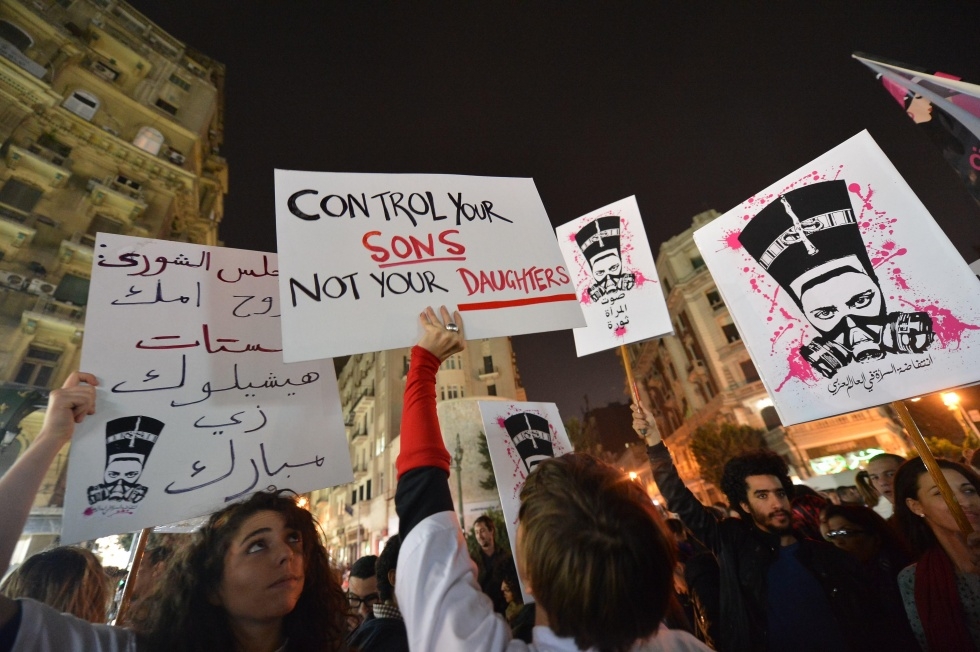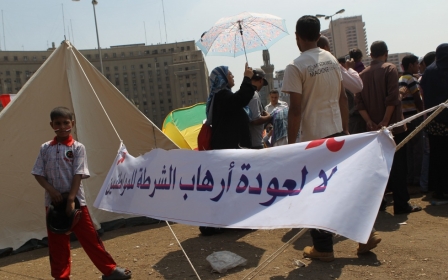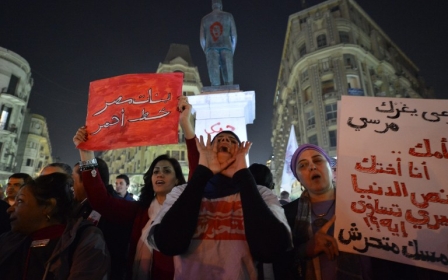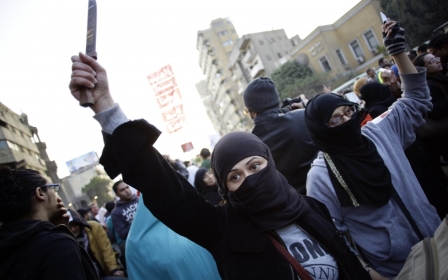Egyptian woman names alleged police rapists on television show

The testimony of a young women who says she was raped in custody by police officers in Cairo has sparked uproar in Egypt, where rights activists say law enforcers are allowed to commit crimes with impunity.
The 18-year-old woman, identified only as Fatima, told a Turkey-based opposition channel al-Sharq on Tuesday night that "Mahmoud Hosseini" and two other police officers attacked her in the cell of a police station in north-east Cairo where she had been detained for more than a month.
“I was arrested from my home on 30 January at six o'clock in the evening. I was beaten in front of my father, and the officers stole things from my house,” the student told the show's presenter, Hatham Abdu Khalil.
“They took me to the station in al-Mareg [a densely-populated suburb of the capital] where I was tortured and electrocuted – after that they raped me.”
Open discussions of sexual violence are rare in Egypt, as elsewhere, and the frankness of the 15-minute interview has shocked many.
“I say to the officer who raped me: you have done everything possible to stop me from speaking the truth - but I will go on speaking out until the truth emerges and I have retribution."
It is unclear whether a criminal case has been launched against the officers named in the recording.
Police officials have yet to comment on the allegations.
At one point in the interview, as the woman's brother is talking, presenter Abu Khalil looks down appearing to hold back tears.
After describing the ordeal, Fatima calls on male activists to play a greater role in demanding rights for women.
“If you go out to the streets only over things like petrol [prices] and bread, you are not real men. You must go out and protest for my rights and the rights of all female detainees."
More than 900 women have been detained over the past four months according to a statement issued on Sunday by the Muslim Brotherhood-linked Revolutionary Coalition for Egyptian Women, including 57 who reportedly remain in prison.
After the broadcast the video was widely shared and discussed on social media, with many comparing the story to other high-profile cases of sexual violence against women.
Opposition activists seized on the allegations, with many directly blaming President Abdel Fattah al-Sisi, who came to office pledging a crackdown on sexual violence, after at least nine women were assaulted in Cairo’s iconic Tahrir Square during his inauguration ceremony in June 2014.
Translations: See how many girls other than Fatima have been raped, and how many will still be raped because of your silence and your swallowing of media drawn by Sisi
Sexual harassment and violence has been on the rise in Egypt in recent years despite women-led campaigns aiming to raise awareness of what they say is an endemic culture of street harassment.
Egyptian police officers have been accused of involvement in sexual violence.
Last December two police officers were detained for 15 days after being accused of raping a woman who they escorted from a parked car in a Cairo suburb, Egypt’s state-owned al-Ahram news site reported.
Activists warn that the harassment and violence common on Egypt’s streets is often replicated inside police holding cells and prisons.
Prisons are “very much a microcosm of the wider society,” observes Diana Eltahawy, a former member of the Egyptian Initiative for Personal Rights, saying that police often use force with "impunity".
Both men and women say they have been victims of sexual violence in Egyptian prisons. A report by Amnesty International published last July included the testimonies of men who say they were raped and sexually assaulted during police interrogations.
New MEE newsletter: Jerusalem Dispatch
Sign up to get the latest insights and analysis on Israel-Palestine, alongside Turkey Unpacked and other MEE newsletters
Middle East Eye delivers independent and unrivalled coverage and analysis of the Middle East, North Africa and beyond. To learn more about republishing this content and the associated fees, please fill out this form. More about MEE can be found here.




